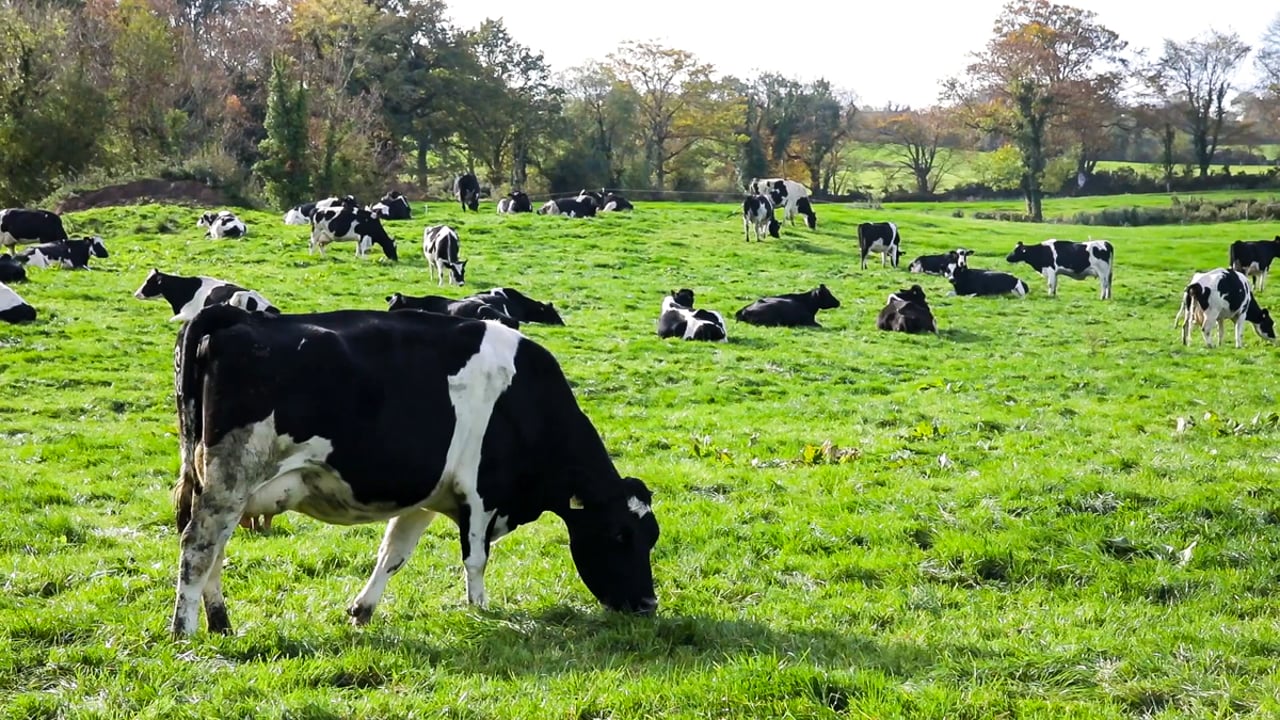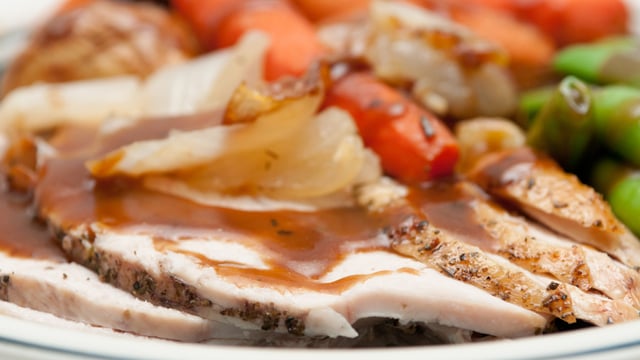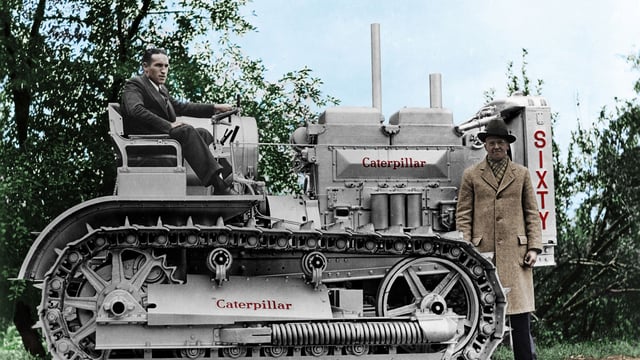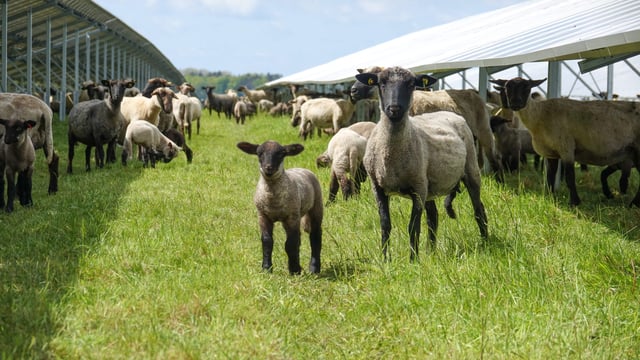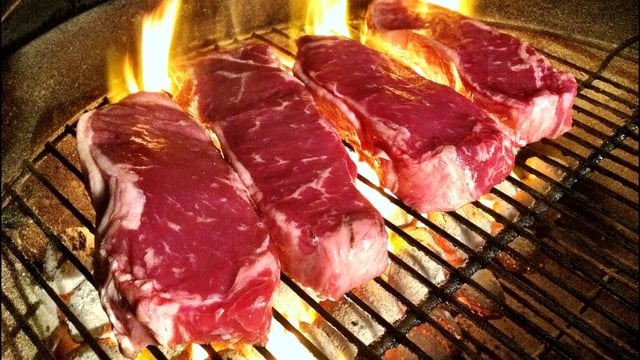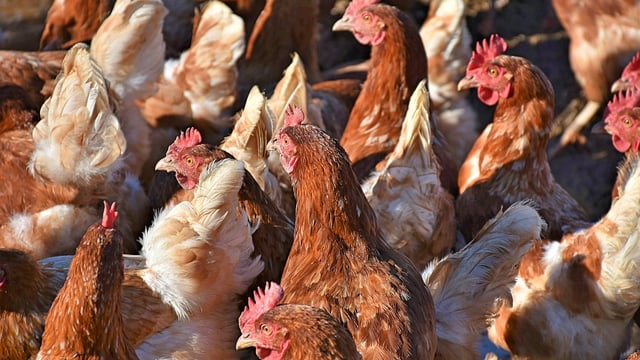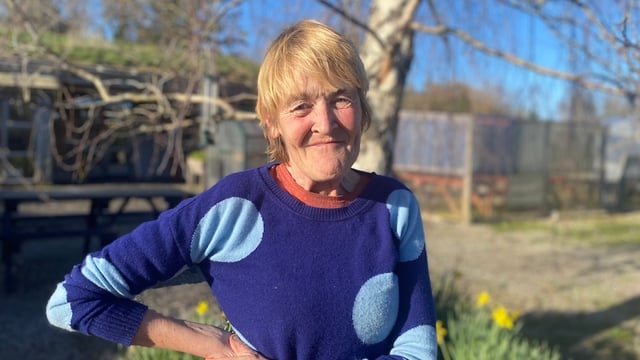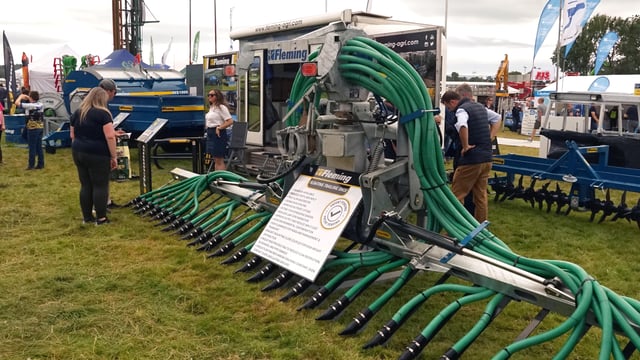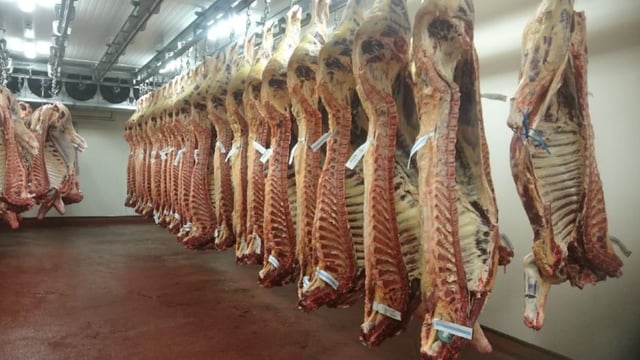Keeping costs down with 500 cows over three leased farms
Keeping costs down is the driver of profitability for Cork dairy farmer Joe Deane who has built his way up in the dairy industry through leasing ground.
This was emphasised by Deane at the Irish Grassland Association (IGA) dairy conference where minimising costs and setting the farm up for success in 2025 was very much the theme of the day.
The dairy farmer lives in Carrigaline, Co. Cork with his wife Laoise and two young kids Jack and Michael.
Deane originally hails from a drystock farm in east Cork and after secondary school, he studied for a level 7 qualification in agriculture between Clonakilty Agricultural College and CIT (now MTU) followed by a BSc in Agriculture with Business at Aberystwyth University, Wales.
When he completed his studies, he went to work on dairy farms in Canterbury, New Zealand for 18 months before returning home to work as a dairy farm manager for five years in Cork.
Leasing
Deane believes that leasing land is a great opportunity for young farmers to get into dairy farming and feels that the dairy industry would not be in the same position today without leased land.
However, he believed that there does need to be more security for farmers to have the option to buy farms, or at least get their return on investment at the end of the agreement.
The dairy farmer felt that there needed to be a tax incentive for owners of land to sell the land to young farmers getting into the industry or farmers who have been leasing the land for a number of years.
Deane took the step to undertake leases by building up dairy young stock on his home farm and also leased in cows to the farms where he was working, which he said "helped greatly with taking the first step into leasing my first dairy farm".
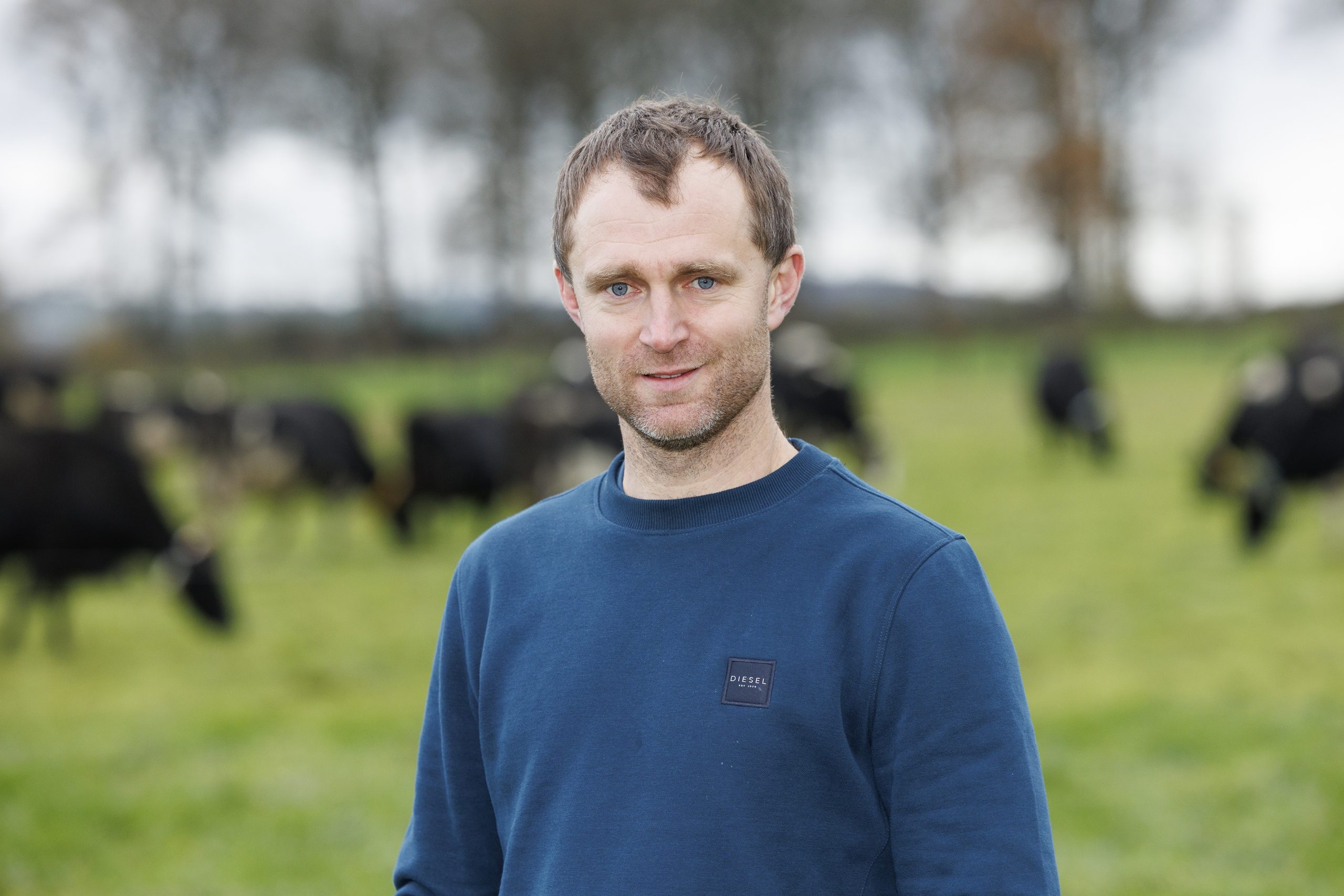
In 2017, Deane leased his first dairy farm near Ballyfeard, Carrigaline, which was 54ha, on a seven-year lease extended by one year for 2024.
This lease has now ended as the farm has been sold and he has now leased a dairy farm in a 50:50 partnership with his cousin Paul Kingston near Mitchelstown, north Cork on a 10-year lease starting in January 2025.
Deane started milking 125 cows there for the first year and grew that farm to 200 cows by 2020 through leasing an additional 13ha in 2019 adjacent to the milking platform.
The opportunity arose to lease more land in 2020 on the edge of Carrigaline town which was only 6km from the first unit which was on an 11-year lease with a 35ha milking platform and a 18ha outside block nearby where there were 120 cows being milked.
In 2023, the Deanes leased a dairy farm near Carrigtwohill, east Cork which is a 50ha milking platform on a 10-year lease, where they will milk 150 cows in 2025.
Simple system
"Running a simple and repeatable system is key in our business. We don't target 100% performance; if we achieve 80-90%, I am more than happy," the Cork man said.
The planned start of calving is February 9 with a six-week calving rate of 92% in 2024 and the cows produced 445kg MS/cow in 2024.
Deane was running an overall stocking rate (SR) of 2.5LU/ha and an average milking platform SR of 2.75 LU/ha in 2024 between the three farms.
Regardless of milk price at the time, empty cows are sold at the end of August every year and the voluntary culls are sold in September or early October depending on grass growth.
The farms are very much grass focused as he grew 11.5t/ha in 2024 while spreading 185kg of nitrogen (N)/ha in 2024.
"We have focused strongly on clover establishment in the past few years and concentrates fed for 2024 were 750kg/cow with a target of less than 500kg," Deane added.
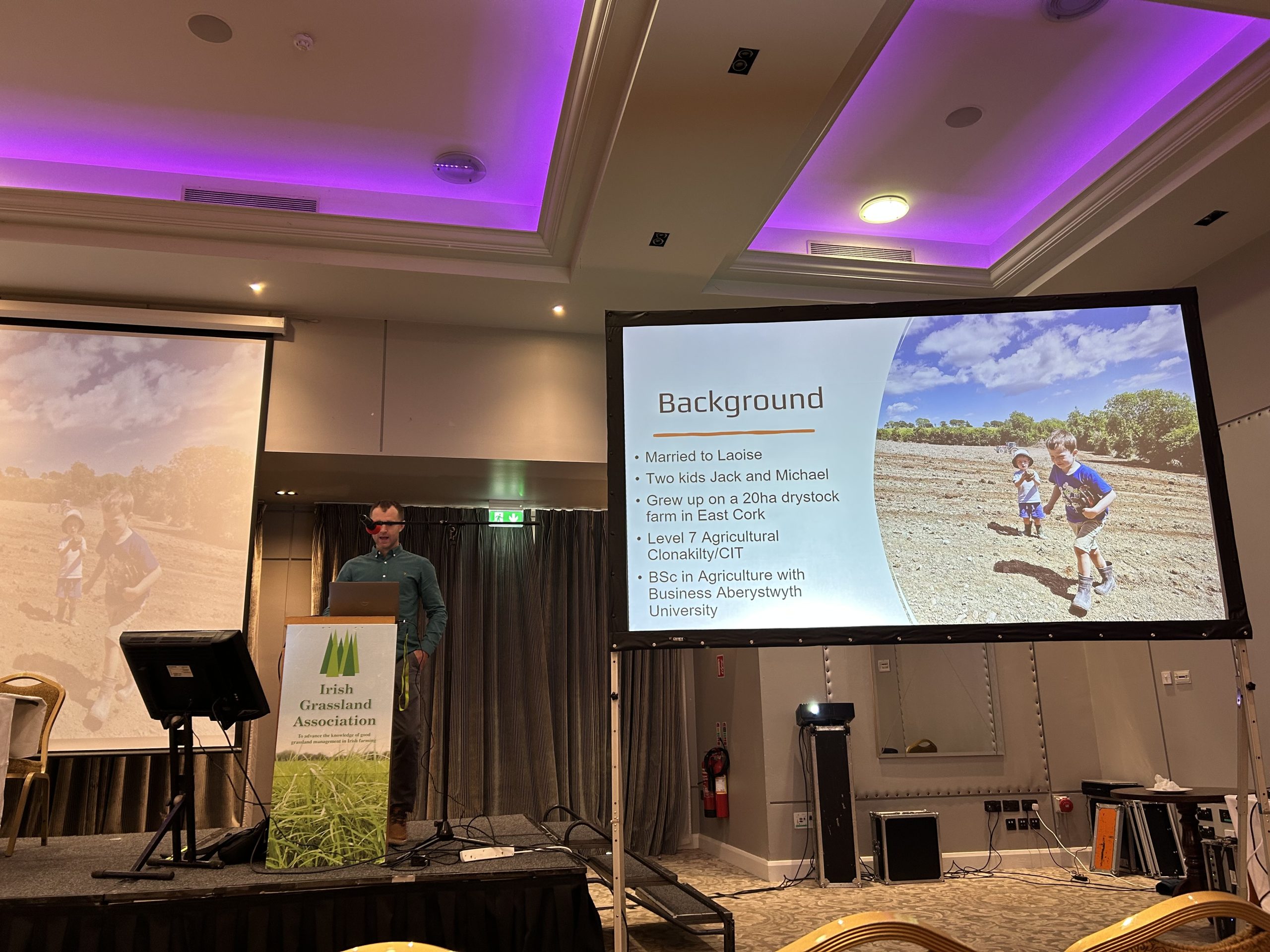
There is 4-5% of the milking platform planted with fodder beet for grazing with milking cows from September to December, which he finds beneficial for building condition in the back-end and to build covers.
The use of contractors right across the enterprise means hassle and additional costs are limited as Deane said "they really reduce the labour requirements on the farms throughout the year and contract rearing our heifers simplifies our system further".
Minimisng costs
Joe Deane highlighted his emphasis on cost control: "I don't chase that last 10% of production in order to keep costs down."
When Deane was questioned as to why he doesn't push the cows in the backend when there is a decent milk price, he explained that he would rather feed that bit extra in the late spring when he is more likely to see that pinch in grass growth and demand.
Gross farm income for 2024 was €7.11/kg of MS and Deane's farm working expenses were higher than he would like at €3.40/kg/MS excluding labour and land lease.
"This was due to poorer than budgeted milk and grass production," Deane explained.
However, due to the higher milk price, common operating profit ended up at an average of €2,650/ha "which is just slightly below the average for the past three years", he said.
"I wouldn't say there is any one cost that we focus on in particular, all costs are analysed to see where savings can be made."
Deane's labour bill is quite high but he said he would not change it as the amount of labour used is quite efficient and he believes in rewarding people well in the form of wages, working hours, working conditions and by providing opportunities to progress.
He said that "this investment in labour repays itself by generating a profitable business at a large scale with minimal stress".
The plan for the future for Deane over the next three to seven years is to eventually buy a farm of his own where he can milk over 150 cows.

